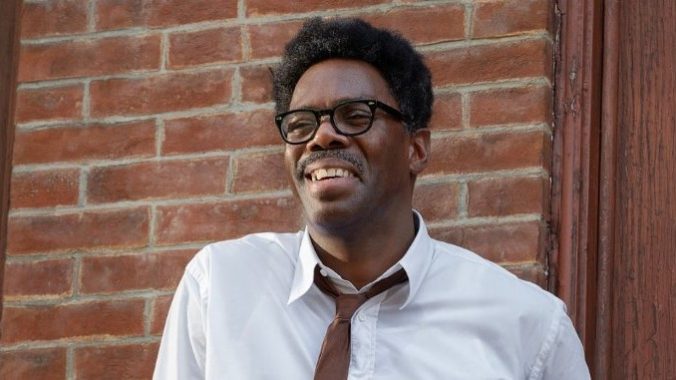Rustin Turns the Procedural Biopic Into a Deadening Routine

The often-staid biopic genre had a shot in the arm around a decade ago when movies like Steven Spielberg’s Lincoln and Ava DuVernay’s Selma took an almost procedural interest in signature accomplishments from the figures they profiled. These movies didn’t just eschew the cradle-to-the-grave clichés of biographies, but attempted to explain Abraham Lincoln and Martin Luther King Jr. – or facets of them, at least – through the obstacles and personalities they encountered while doing the (but not all of the) work. That’s where Rustin, the new Netflix-branded, Obamas-produced film about a less globally famous civil rights leader, sees itself. It’s about Bayard Rustin (Colman Domingo), yes, and his dual identities as a Black American and a gay American, yes, but especially how Rustin worked with (and sometimes, when needed, against) various allies, rivals and outright enemies to organize the historic March on Washington for Jobs and Freedom in 1963. Exploring the mechanics of this epochal event is a great idea, led by a memorable performance from Domingo, that somehow still manages to render the protest march as flat and lifeless as any obligatory TV-movie checklist.
Director George C. Wolfe previously made the Netflix-produced Ma Rainey’s Black Bottom, essentially a filmed play with even fewer locations and, certainly, less far-reaching historical scope. Yet thanks to Wolfe’s direction and – no small thing – the performances of Chadwick Boseman and Viola Davis, that movie was frequently electrifying, with a restless, frame-prowling energy. What happened here? It can’t be pinned on Domingo, who modulates his considerable charisma perfectly: His gravelly, wheedling voice and confident bearing make him immediately memorable, while also making clear why he was more of a guy-behind-the-guy to his friend King (Aml Ameen) – he’s literally in the background during King’s “I Have a Dream” speech during that 1963 march – than a public face of the movement. His righteous showmanship has a slight unruliness that, in this context, makes him look bolder and less decorous than the establishment would prefer.
It also ruffles the feathers of more traditionally-minded civil rights leaders, like the NAACP’s Roy Wilkins (a subdued Chris Rock) and Representative Adam Clayton Powell Jr. (Jeffrey Wright), the latter threatening to expose Rustin’s homosexuality if he doesn’t stop agitating for this protest. This should provide much of the story’s juice, digging into the details of how this famous event came together and how a number of prominent figures actively discouraged it, rife with negotiation and dueling egos. Instead, the big confrontation scenes quickly turn repetitive; unlike in Ma Rainey, Wolfe doesn’t appear to be taking much pleasure in sparking great actors against each other. Multiple characters’ time on screen feels limited by shooting schedules, whether that was actually the case or not, just as the climactic march struggles to convey the requisite sense of triumph with its abrupt shifts to archival footage. This should be the deeply moving show of strength the whole movie has been building towards; instead, it’s a distracting change of texture at the last minute, stranding its actual dramatic subjects.
-

-

-

-

-

-

-

-

-

-

-

-

-

-

-

-

-

-

-

-

-

-

-

-

-

-

-

-

-

-

-

-

-

-

-

-

-

-

-

-








































